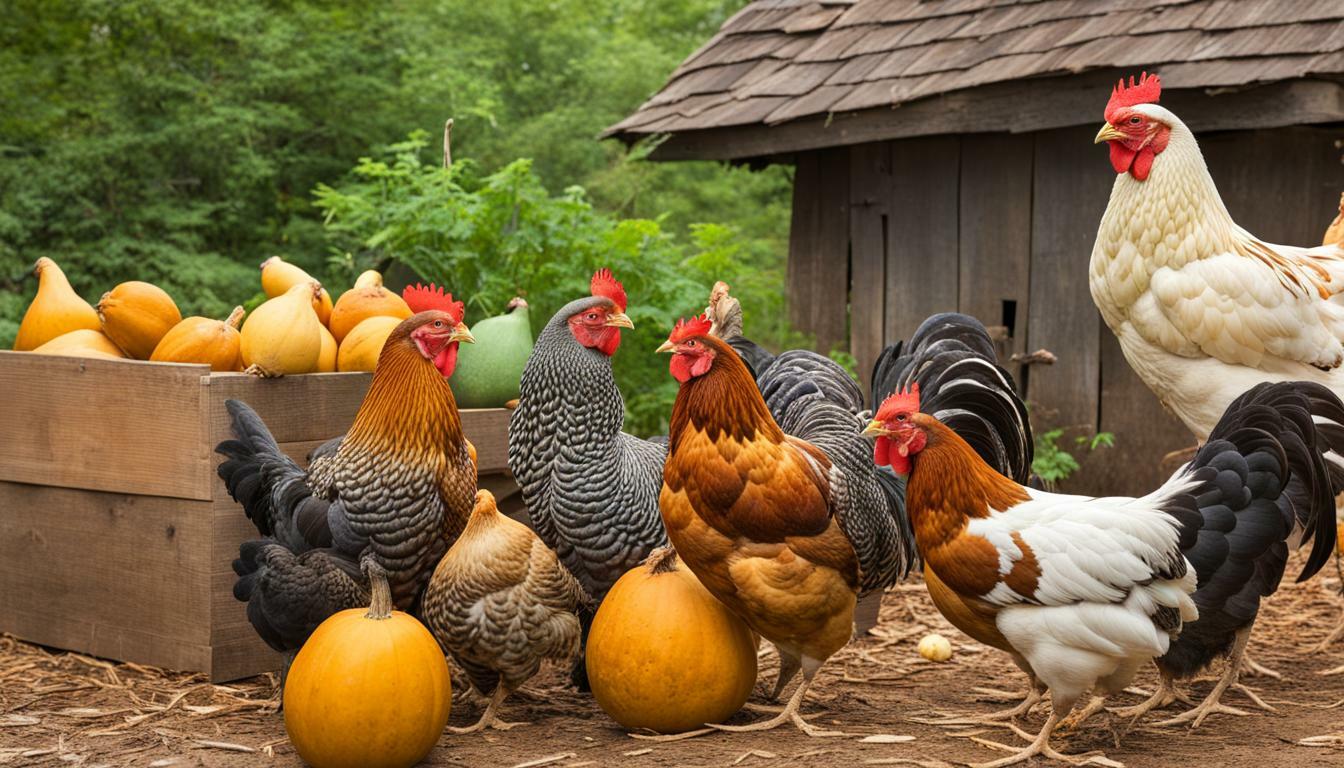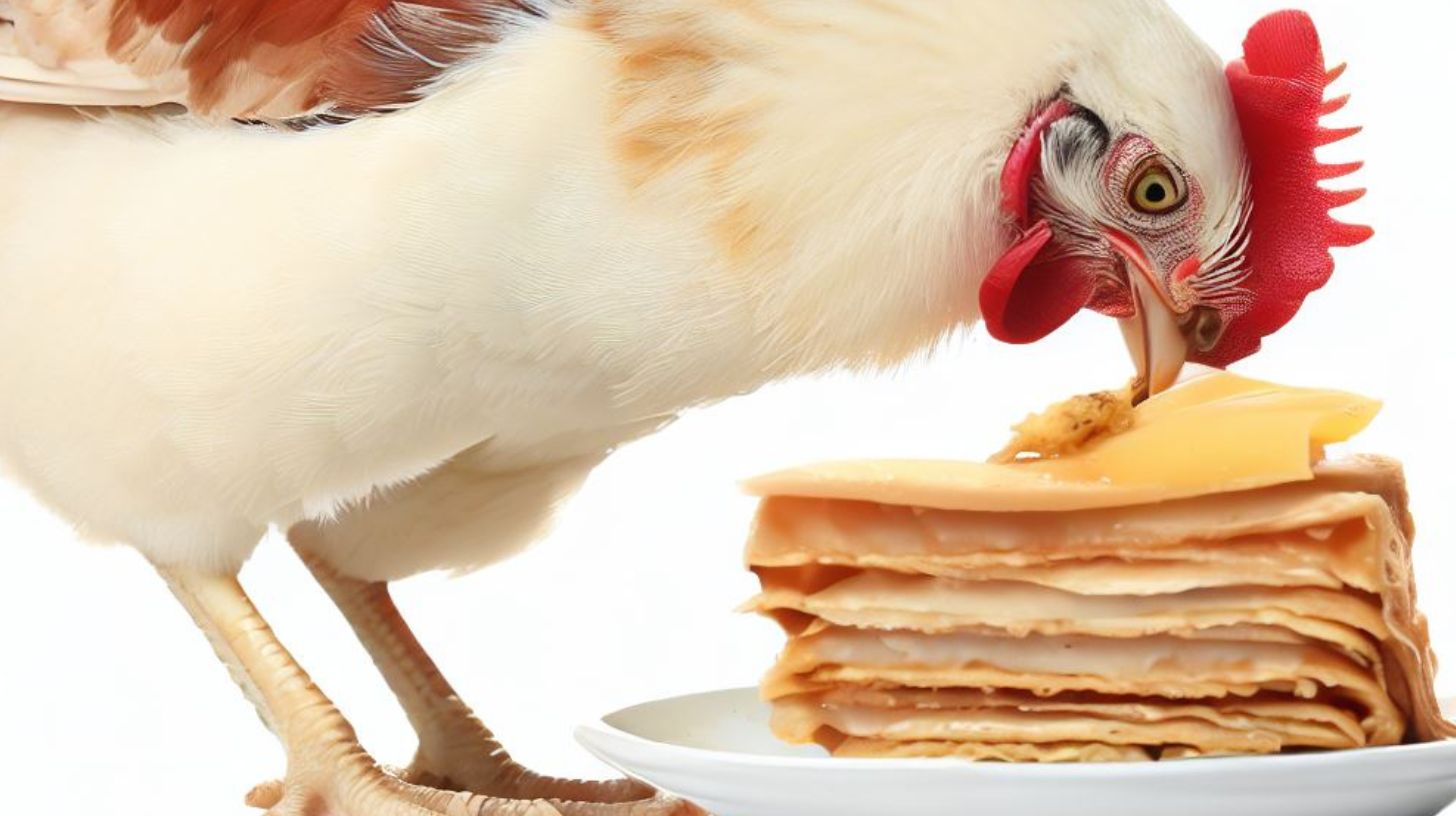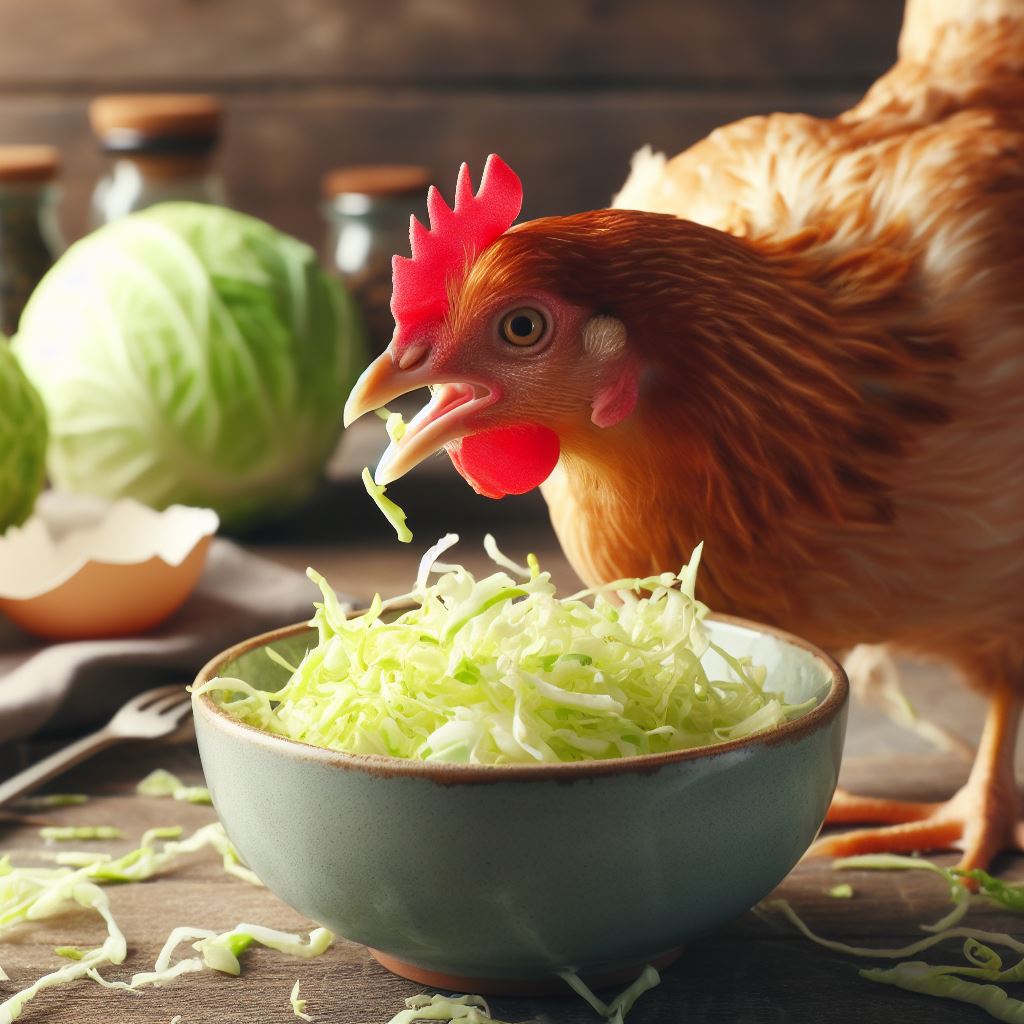Can Chickens Eat Gourds? A Friendly Guide for Poultry Owners

Table of content:
- Can chickens eat pumpkins?
- Are gourds safe for chickens?
- What vegetables can chickens eat?
- Can chickens eat zucchini?
- Can chickens eat butternut squash?
- What fruits and vegetables are toxic to chickens?
- How do you prepare gourds for chickens?
- Can chickens eat raw pumpkin or does it need to be cooked?
- What are the benefits of feeding gourds to chickens?
- How much pumpkin/gourds should you feed chickens?
- Final Thoughts
Gourds like pumpkins, squash, zucchini, and other varieties are common vegetables grown in home gardens. If you have backyard chickens, you may wonder if these gourds make good treats and supplements to their usual chicken feed. Let’s explore the topic of feeding chickens different types of gourds.
Can chickens eat pumpkins?
Yes, chickens can safely eat pumpkin flesh and seeds. Pumpkin provides beneficial vitamins, minerals and antioxidants. It is a great source of vitamin A and beta-carotene. Feed chickens fresh raw pumpkin chopped into pieces, cooked soft pumpkin or blended pureed pumpkin.
Are gourds safe for chickens?
Most common gourds are safe for chickens to eat including pumpkins, winter squash varieties like butternut squash and acorn squash, summer squash like zucchini and yellow squash, spaghetti squash, and more. Avoid gourds from the Cucurbitaceae family that are toxic like bitter melon.
What vegetables can chickens eat?
Chickens can eat a wide variety of vegetables including squash, pumpkins, zucchini, spinach, kale, broccoli, cabbage, brussels sprouts, beets, carrots, sweet potatoes, peas, parsnips, turnips, asparagus, and more. Vegetables provide important vitamins, minerals, and nutrients.
Can chickens eat zucchini?
Yes, zucchini and other summer squash make great treats for chickens. They enjoy the flesh, skin and seeds. Zucchini contains vitamin A, B vitamins, and potassium. Feed chopped raw or cooked zucchini in moderation as part of a balanced diet.
Can chickens eat butternut squash?
Butternut squash is safe for chickens to eat. Butternut squash contains lots of key nutrients like vitamin A, vitamin C, potassium, and magnesium. It can be fed raw, cooked, or pureed. Chickens will enjoy scratching at whole squash or pumpkins for boredom-busting enrichment.
What fruits and vegetables are toxic to chickens?
Some toxic fruits and vegetables for chickens include potatoes, eggplant, tomato leaves and stems, avocados, mushrooms, citrus fruits, dried beans or peas, anything moldy or rotten, and any pits, seeds, and plants from the nightshade family.
How do you prepare gourds for chickens?
To prepare gourds:
- Wash thoroughly
- Cut into pieces or cubes
- Cook until soft by baking, boiling, or steaming
- Mash or puree cooked flesh
- Can also feed raw – chop it into small pieces
- Remove rind, skin, seeds, stems – these are choking hazards
Always introduce new treats slowly and watch for signs of intestinal upset. Provide gourds in moderation along with their regular feed.
Can chickens eat raw pumpkin or does it need to be cooked?
Chickens can safely eat raw pumpkin flesh, skin, and seeds. Raw pumpkins may be more appealing to chickens for natural foraging behaviors. The flesh contains more beneficial enzymes, vitamins, and antioxidants when raw. Cooked pumpkin is softer and may be more easily digested. For optimal nutrition and enjoyment, offer both raw and cooked.
What are the benefits of feeding gourds to chickens?
Benefits of feeding gourds like pumpkin and winter squash include:
- Provides variety and enrichment
- Encourages natural foraging behaviors
- Nutrient dense – good source of vitamins A, C, potassium, magnesium
- May boost egg production and quality
- Antioxidants and health promoting compounds
- Can help with intestinal parasite management
- Provides filler to help with weight control
How much pumpkin/gourds should you feed chickens?
Feed gourds like pumpkin or squash in moderation as part of a balanced diet. Good serving sizes per chicken include:
- 1-2 cubes of raw pumpkin 2-3 inches in size
- 1/4 cup cooked mashed pumpkin
- 2-3 strips of raw zucchini or squash 2-4 inches long
Adjust amounts based on the size and number of chickens in your flock. Provide a few small treats daily or larger portion a couple of times a week. Take care not to overfeed.
Final Thoughts
Most common gourds grown in home vegetable gardens are healthy, safe treats for backyard chickens. Varieties like pumpkins, winter and summer squash, and zucchini provide great enrichment. In moderation, gourds can provide important vitamins, minerals, antioxidants, and nutrients chickens need without the negatives of processed treats. Follow basic guidelines for preparation and serving sizes to safely supplement your flock’s diet with garden fresh gourds.
Welcome. I’m Adreena Shanum, the proud owner of this website, and I am incredibly passionate about animals, especially poultry. I founded adreenapets.com as a labor of love, stemming from my desire to share my knowledge and experiences with poultry enthusiasts worldwide.




